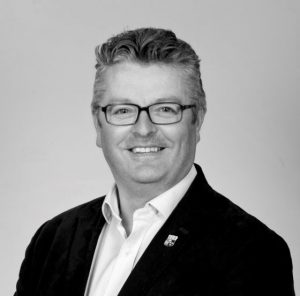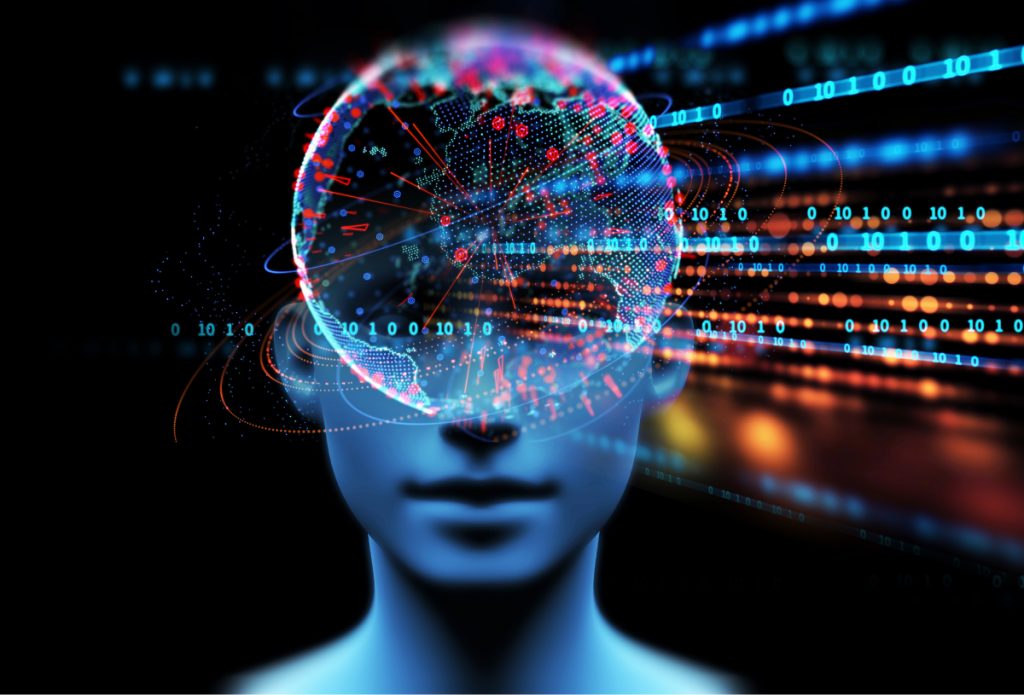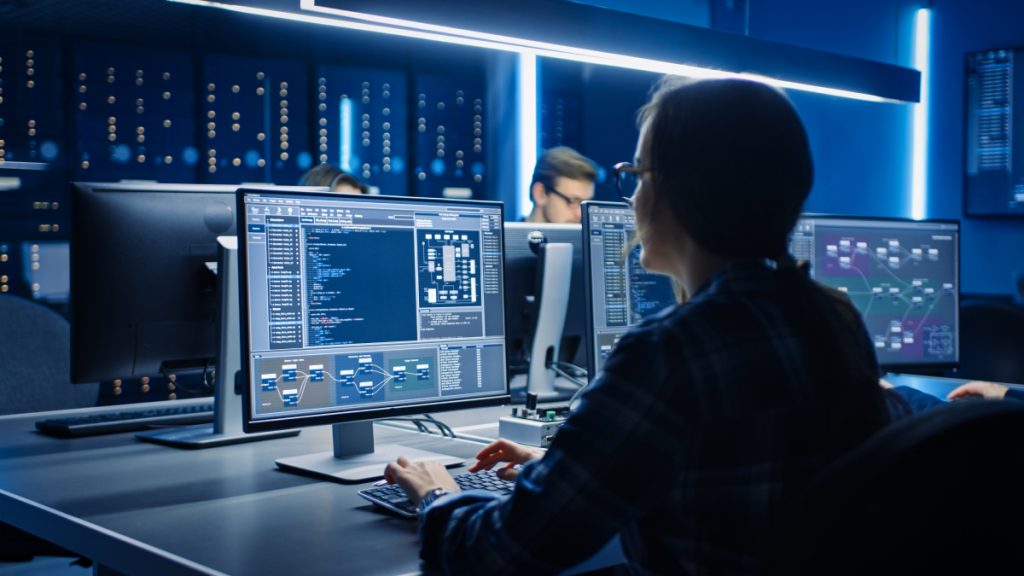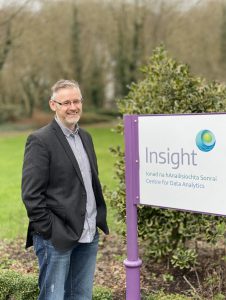role: Students
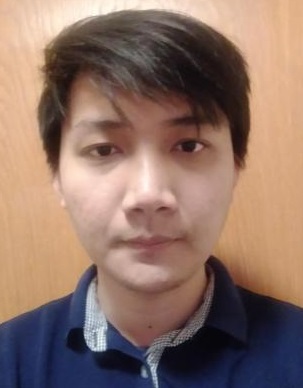
An Nguyen Pham
PhD Researcher
My name is An, I am from Vietnam. My previous major was Mathematics, specialising in Analysis. At the moment, I am a first year PhD student at School of Computing, DCU. Regarding my research interests, I would like to apply Machine Learning, Deep Learning and also Mathematical aspects such as Statistics to the financial field. For instance, using Deep Learning to predict stock prices and forecast the crisis in the financial market. When I have free time, I like to relax by cooking or simply reading my favourite books.
Supervisors: Dr. Martin Crane
PROJECTS

Optimisation and Constraint Programming
Lorem ipsum dolor sit amet, consectetuer adipiscing elit. Donec odio. Quisque volutpat mattis eros. Nullam malesuada erat ut turpis. Suspendisse urna nibh, viverra non, semper suscipit, posuere a, pede. Lorem Ipsum Donec nec justo eget felis facilisis fermentum. Aliquam porttitor mauris sit amet orci. Aenean dignissim pellentesque felis. Morbi in sem quis dui placerat ornare. […]
OTHER TEAM MEMBERS
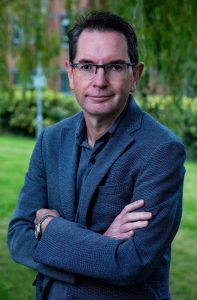
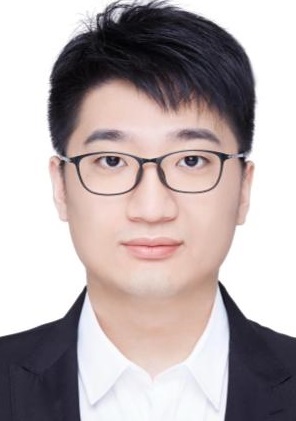
Yucheng Shi
PhD Researcher
Yucheng is a first-year Ph.D. student in the Distributed Simulation Group (DSG) of Computer Science, Trinity College Dublin, where Professor Vinny Cahill supervises him. Prof Vinny ‘s research field includes Reinforcement Learning (RL) , Connected and Autonomous Vehicles (CAVs), and Distributed Simulation, a subfield of Intelligent Transportation aiming to deliver high-quality traffic management solution while reducing the average travel time in highway and intersection scenario.
Yucheng holds an MSc. in Software Engineering, Northwestern Polytechnical University, China. His proposal focuses on Multi-agent Reinforcement learning on Intersection Management joining the CRT-AI funded PhD programme. Yucheng now is working on the Slot-Base Driving (SBD) management algorithm on the highway, which allows the vehicle to follow a real-time calculated trajectory and eventually drive into its target slot. The project aimed to improve the vehicle’s arrival rate performance without any collision compared with traditional ramp metering and traffic light. In his spare time, Yucheng enjoys reading, gaming, and sports, especially basketball.
Supervisors: Professor Vinny Cahill
OTHER TEAM MEMBERS
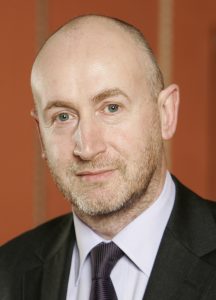
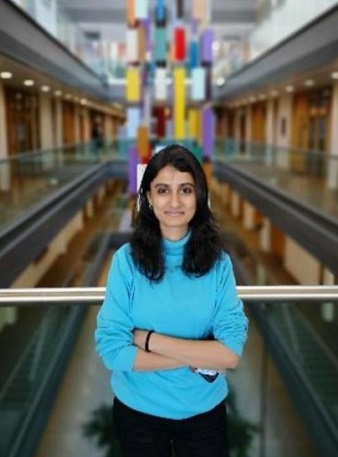
Buvana Ganesh
PhD Researcher
Buvana holds a BSc/MSc in Mathematics from the University of Madras. She was the class rep and Student Union General Secretary during her Bachelor’s Days. Buvana’s academic achievements include: Holding two gold medals as the best Post Graduate student during her Masters and Best student during Bachelors. She also took part in the Mathematical association and also worked with U&I as an educational volunteer teaching English and Mathematics to underprivileged kids in Chennai. Prior to joining CRT in AI, Buvana held a post as a Data and Business Analyst in a start-up company. Her Bachelor’s project was on using Rough set theory for extracting information from datasets using uncertainty. The subject of her Masters project was in Encodings in Lattice based cryptography and following the same lines, Buvana is now researching on making Privacy Preserving storage and computations in Big Data with a focus on Artificial Intelligence.
Supervisors: Dr Paolo Palmieri & Professor Gregory Provan
PROJECTS

Optimisation and Constraint Programming
Lorem ipsum dolor sit amet, consectetuer adipiscing elit. Donec odio. Quisque volutpat mattis eros. Nullam malesuada erat ut turpis. Suspendisse urna nibh, viverra non, semper suscipit, posuere a, pede. Lorem Ipsum Donec nec justo eget felis facilisis fermentum. Aliquam porttitor mauris sit amet orci. Aenean dignissim pellentesque felis. Morbi in sem quis dui placerat ornare. […]
PUBLICATIONS
OTHER TEAM MEMBERS
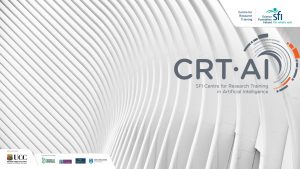
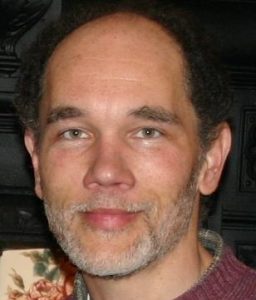
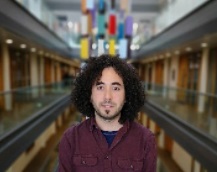
Sergi Gómez Quintana
PhD Graduate 2022
Sergi Gómez Quintana has a passion for engineering, music and sound. He is from Barcelona (Spain), where he received his Master’s degree in Telecommunications from the Universitat Politècnica de Catalunya. He also worked in several jobs and personal projects related to music, sound and technology.
His background as an engineer and musician place him into a unique position where he can contribute with both analytical and creative solutions. Over the past 12 months he has been conducting research in UCC with the INFANT Centre and Embedded Systems Group. This research was jointly funded by the Wellcome Trust and Grand Challenges Canada Seed Awards. His research is in the areas of AI-based analysis of heart sounds and sound-based analysis of brain. He has developed a novel signal processing algorithm to convert neonatal brainwaves to sound that has shown a high level of achieved accuracy. This resulted in two published conference papers in leading engineering (IEEE) and clinical domains (Paediatric Societies), including a best paper award at IEEE ISSC.
Up to now, he has attended numerous conferences, seminars and events related to engineering and neurophysiology, including the International Conference on Brain Monitoring and Neuroprotection in the Newborn (BMNN), the IEEE Irish Signals and Systems Conference (ISSC) and the European Academy of Paediatric Societies Congress (EAPS). Additionally, he has participated as a volunteer in several outreach events such as the BT Young Scientist & Technology Exhibition and the European Researchers’ Night.
“Being part of CRT-AI gives me a great opportunity to use my expertise developing the ML foundations for the next generation of medical devices and decision support tools that can save or improve lives.”
Supervisors: Dr Emanuel Popovici & Professor Geraldine Boylan
PUBLICATIONS
OTHER TEAM MEMBERS
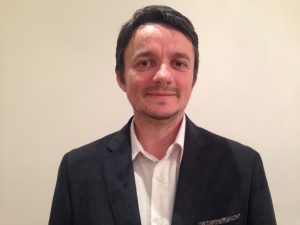
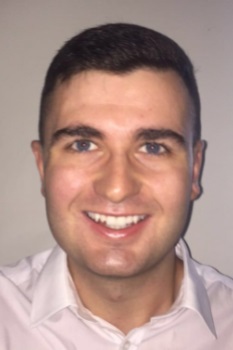
Alex Randles
PhD Researcher
Alex Randles received a First Class Honours in a Bachelor’s degree in Computer Applications, from Dublin City University. During his BSc, he completed a research project, which involved designing a voice-controlled assistant, which uses natural language processing, to allow users the ability to carry out a number of functions, such as sending emails, searching Wikipedia and even controlling smart home devices.
He also completed an internship in the Central Bank of Ireland. During this time, he gained valuable team working skills. His work focused on file transfer projects, which involved sending and receiving files to and from the European Central Bank.
Currently, Alex is conducting his research in the ADAPT Research Centre, located in Trinity College Dublin. His research focuses on Linked Data quality, specifically relating to quality within the processes involved in creating linked data, with a specific focus on using Artificial Intelligence to improve these processes. He is also involved in the AVERT project, which involves using Linked data to investigate environmental triggers of clinical conditions and events.
Supervisor: Professor Declan O’Sullivan and Dr Ademar Crotti Junior
PUBLICATIONS
OTHER TEAM MEMBERS
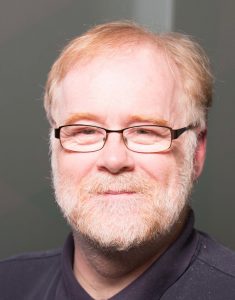

Mikhail Kudriavtsev
PhD Researcher
For his Master’s degree, Mikhail studied Informatics and Computer Sciences at the Moscow Institute of Electronic Technology (MIET). Despite specializing in Microelectronics, he applied this knowledge in a variety of fields. As such, his Master’s thesis was on signal processing in human-computer interaction. He worked as a software developer for an IT company as part of an extremely experienced team produced a working national payment system for Armenia. After this Mikhail joined a scientific group in the Moscow State University of Design and Technology (MSUDT) to study the role of Artificial Intelligence in design. Specifically, his research topics included solving the problem of quick and objective user interface evaluation and fashion trend prediction. In MSUDT he started to study Machine Learning techniques and multivariate statistical analysis. At the same time, he worked as a lecturer at The University of Contemporary Art, Moscow, teaching UX design.
My main passion is science in general. That is why I like to study and then implement knowledge in any field. That is why I like to learn everything very classically: math, physics, computer science as well as art history, classical music, ballroom dancing, pure ballet. And that is why I like teaching; as a way to share science. Aristotle summed up my perspective when he said, “ true happiness is the exercise of reason – a life of intellectual contemplation, of thinking.” Currently, Mikhail is researching on Association Rule Mining techniques in general with further application to revenue management.
Supervisors: Dr. Marija Bezbradica and Dr. Andrew McCarren
OTHER TEAM MEMBERS
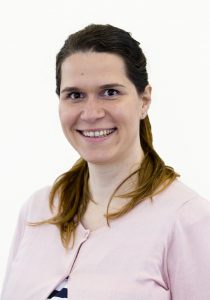

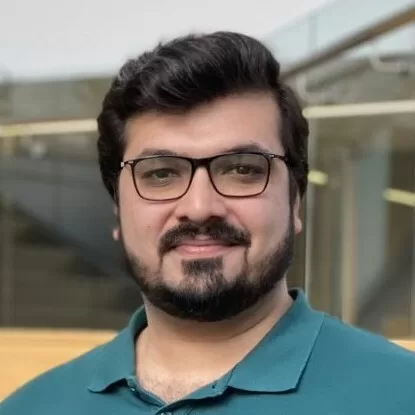
Muhammad Jaleed Khan
PhD Researcher
Jaleed Khan is an AI researcher and lecturer with more than six years of experience in industrial and academic setups. He serves as a consultant and trainer in the industry and teaches undergraduate and postgraduate courses in AI, data science and software development. Currently pursuing his PhD in AI at University of Galway’s Data Science Institute, Jaleed’s research blends deep learning and knowledge graphs to advance neuro-symbolic AI for visual understanding and reasoning. Jaleed has presented his work at the leading conferences including European Semantic Web Conference (ESWC), International Conference on Information and Knowledge Management (CIKM), International Conference on Document Analysis and Recognition (ICDAR), Knowledge Graph Conference (KGC) and has numerous publications in high impact journals. He is a member of prestigious organizations, such as Neural-Symbolic Learning and Reasoning (NeSy) Association, International Association for Pattern Recognition (IAPR), Pakistan Pattern Recognition Society (PPRS) and the Artificial Intelligence and Computer Vision (iVision) Lab at Institute of Space Technology, Islamabad. With experience as both a consultant and trainer in industry, as well as a lecturer and researcher in academic institutes, Jaleed is a versatile and accomplished professional in his field.
Supervisor: Professor Edward Curry
PUBLICATIONS
OTHER TEAM MEMBERS

Mehdi Yekrangi
PhD Researcher
Mehdi Yekrangi achieved his B.Sc. in Information technology from IUST (Iran University of Science and Technology) and his M.Sc. in E-commerce from QIAU (Qazvin Islamic Azad University), Mehdi joined the SFI Centre for Research Training in Artificial Intelligence. He has a great interest in the Financial Markets which interested him to start learning and working in CFD markets, dealing with various data produced daily in these markets from the very beginning of his undergraduate studies. During his undergraduate studies, he was mostly engaged in developing applications and websites; and due to his great interest in the finance domain, he developed an application with advanced capabilities for accounting affairs for his Bachelor’s graduation work. The abundant data in Social Networks and Financial Markets have always fascinated him to employ it gaining novel insights about sentiments and market behaviors. Therefore, he continued his Master’s studies focused on Natural Language Processing and Sentiment analysis in the Financial Markets. During his researches, he has worked on the relationship between social networks and currency market trends to develop a domain-specific lexicon for Sentiment Analysis in the Financial Markets which has resulted in a journal paper. Since his experiences in the Financial Markets are in close connection with Data Science, he has worked with various kinds of structured/unstructured data. He has applied various Data Mining and Machine Learning methods and techniques solving challenges and problems while improving Technical, Fundamental, and Sentimental approaches to enhance investment results. Mehdi is now working on the ontologies and developing trustworthy resources for Sentiment Analysis in the financial domain and employing them in deep learning architectures.
Supervisor: Dr. Nikola Nikolov & Professor Tiziana Margaria
PROJECTS

Optimisation and Constraint Programming
Lorem ipsum dolor sit amet, consectetuer adipiscing elit. Donec odio. Quisque volutpat mattis eros. Nullam malesuada erat ut turpis. Suspendisse urna nibh, viverra non, semper suscipit, posuere a, pede. Lorem Ipsum Donec nec justo eget felis facilisis fermentum. Aliquam porttitor mauris sit amet orci. Aenean dignissim pellentesque felis. Morbi in sem quis dui placerat ornare. […]
OTHER TEAM MEMBERS
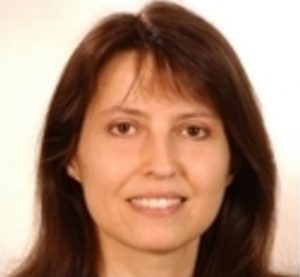
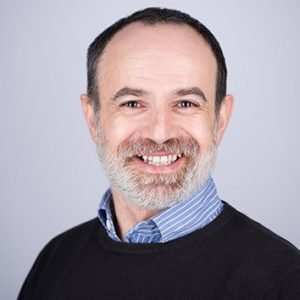
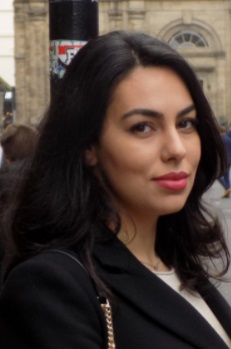
Hedieh Pour Bagheri Sigaroudi
PhD Researcher
Hedieh graduated from the University of Applied Science and Technology, Iran with a Bachelor’s degree in Control and Instrumentation Engineering in 2015. After finishing Electronics Engineering at technical high school, parallel to her undergraduate study at university, Hedieh worked as an electronic products manufacturing manager in different companies for three years. She knows PLC programming and development, industrial automation, and developing sensor and actuator systems. She is Bronze medal winner (3rd place) in Iranian national mechatronic skill competition with the Mashhad city student team in 2011.
Currently, Hedieh is a PhD student at the Centre for Robotics and Intelligent System (CRIS). Her PhD project is funded by the Centre for Research Training in Artificial Intelligence (CRT-AI) supervised by Prof. Daniel Toal and Prof. Tiziana Margaria. She is interested in machine learning and applications of artificial intelligence in industrial robotics and automation.
Supervisors: Professor Daniel Toal
OTHER TEAM MEMBERS

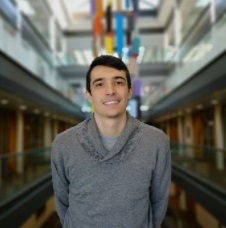
Victor Coscrato
PhD Researcher
Victor Coscrato is a Master in statistics by UFSCar/USP and Bachelor in Statistics byUFSCar. He was born in São Paulo. During his BSc he conducted his first scientific research on agnostic statistical inference. During this time, he was a volunteer member in both the tutorial education program in statistics (PET-EST/UFSCar) and the Risk study centre (CER/UFSCar). His BSc graduation work consisted of a comparative study between word2vec and bag-of-words on natural language processing classification applications. In the last period of his BSc, Victor worked as an intern in people analytics for Stone Company in São Paulo. His job was to create automatic mechanisms to accelerate and improve quality of the company’s employee hiring process. During his MSc jorney Victor discovered his passion in machine learning, which became his main research field since then, leading him to join the statistical machine learning lab (SMaLL/UFSCar). During this time, he wrote two method proposal papers on neural networks usage on regression problems: the first method consisting in a neural network regression ensemble and the latter in a novel interface to local linear smoothing. The MSc dissertation was composed by these two papers combined in a fashion to expose how they connect to each other though. Currently, Victor is interested in general machine learning and artificial intelligence problems, more specifically, he is interested in recommender systems and machine learning models interpretations / prediction explanations. Nevertheless, non-parametric and agnostic statistical inference are still attractive fields for him.
Supervisors: Dr Derek Bridge
OTHER TEAM MEMBERS

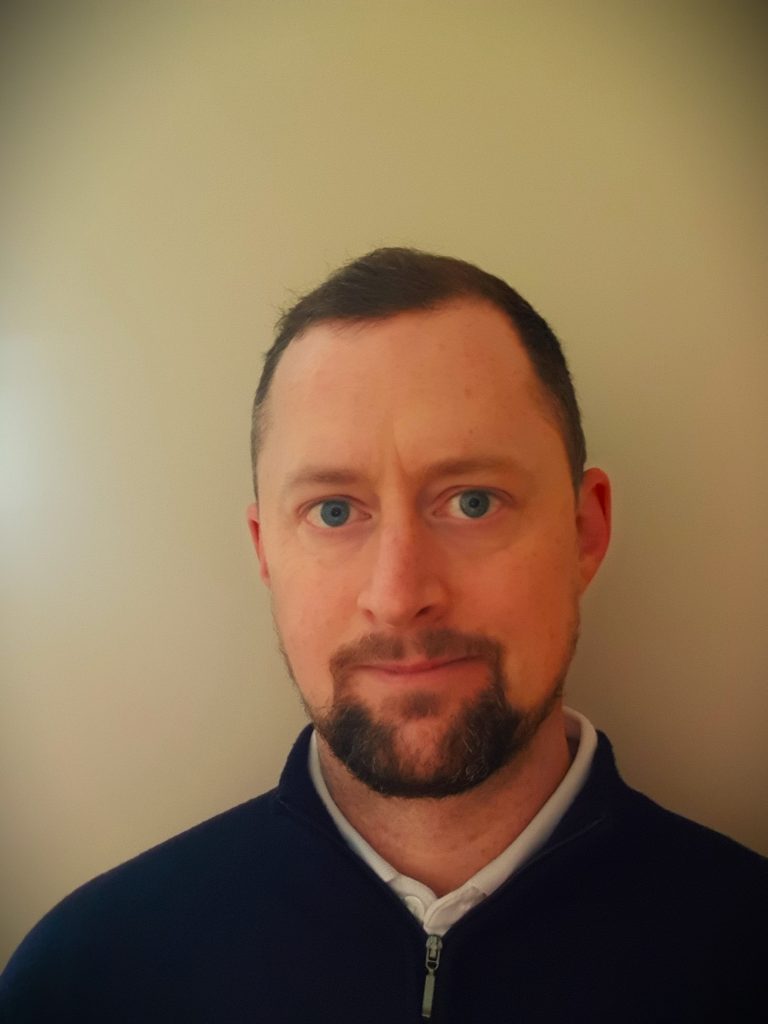
Enda O’ Shea
PhD Researcher
Enda O’Shea is currently a PhD student in the Centre for Research Training in Artificial Intelligence (CRT-AI) program. He did his undergraduate in Computer Systems at the University of Limerick, graduating in 2017 with First-Class Honours. He has master’s degrees, with Distinction and Merit respectively, in Rigorous Software Development (NUIM, 2018) and Knowledge Based Systems (University of St Andrews, 2019), in addition to a Level 7 degree in Business and Finance (L.I.T, 2006.) He has worked on projects in areas relating to Head Pose Estimation, Natural Language Processing, and Formal Verification.
His current PhD research, under the supervision of Professor Tiziana Margaria and Dr. Ciara Breathnach as project leader, is an interdisciplinary project between the Digital Humanities and Computer Science departments in the University of Limerick. Death and Burial Data for Ireland (DBDIrl) have been supplied by the General Registrar’s Office (GRO) in Dublin for the period 1864-1922 to allow researchers to determine the causality of deaths, particularly related to young women, allowing for a potential greater understanding of the power dynamics in everyday life throughout this period. His research is the development of a Machine Transcription Pipeline for these handwritten historical records, covering technical areas such as image processing, segmentation, NLP, and data structures.
He has also worked for approx. 8 years in industry across various roles from Payroll, Access Security, and I.T Base Business. His interests outside of work include Hurling, Rugby, Soccer and Chess.
Supervisors: Professor Tiziana Margaria, Dr. Ciara Breathnach
PUBLICATIONS
OTHER TEAM MEMBERS

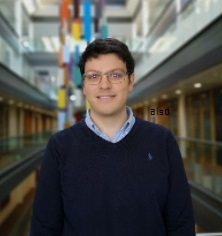
Marco Dalla
PhD Researcher
Marco graduated from the University of Bologna with a Bachelor’s degree in Physics in 2014, and with a Master’s Degree in Nuclear and Subnuclear Physics in 2018. After high school graduation, he worked a two weeks internship at CERN, Geneva. Under the supervision of Dr Carla Sbarra, Marco learned to analyse calibration data of LHC detectors. During his Master’s Degree, he won an INFN-MAE scholarship to study CMOS pixel detectors at the ATLAS Pixel Laboratory at CERN.
There, in a group supervised by Dr Heinz Pernegger, Marco measured and reconstructed the trajectories of particles hitting a silicon detector. During his master thesis, which took place also at CERN, he further studied the problem of track reconstruction inside a pixel detector, optimising the code of the currently used software. The work of his thesis featured in four scientific publications. After getting his Master’s Degree, he began to study Machine and Deep Learning techniques, to apply them to the work of his master thesis.
In January 2019, he won a scholarship from the Department of Informatics, Science, and Engineering of the University of Bologna to study this particular problem. Besides studying the application of deep learning techniques to particle physics, he also worked on large-scale automated identification of cells in confocal light-sheet microscopy images by using Deep Learning and convolutional neural networks.
Currently, Marco is working on Machine Learning techniques applied to electronic quantum matter imaging experiments.
Supervisors: Professor Barry O’Sullivan
PUBLICATIONS
OTHER TEAM MEMBERS
